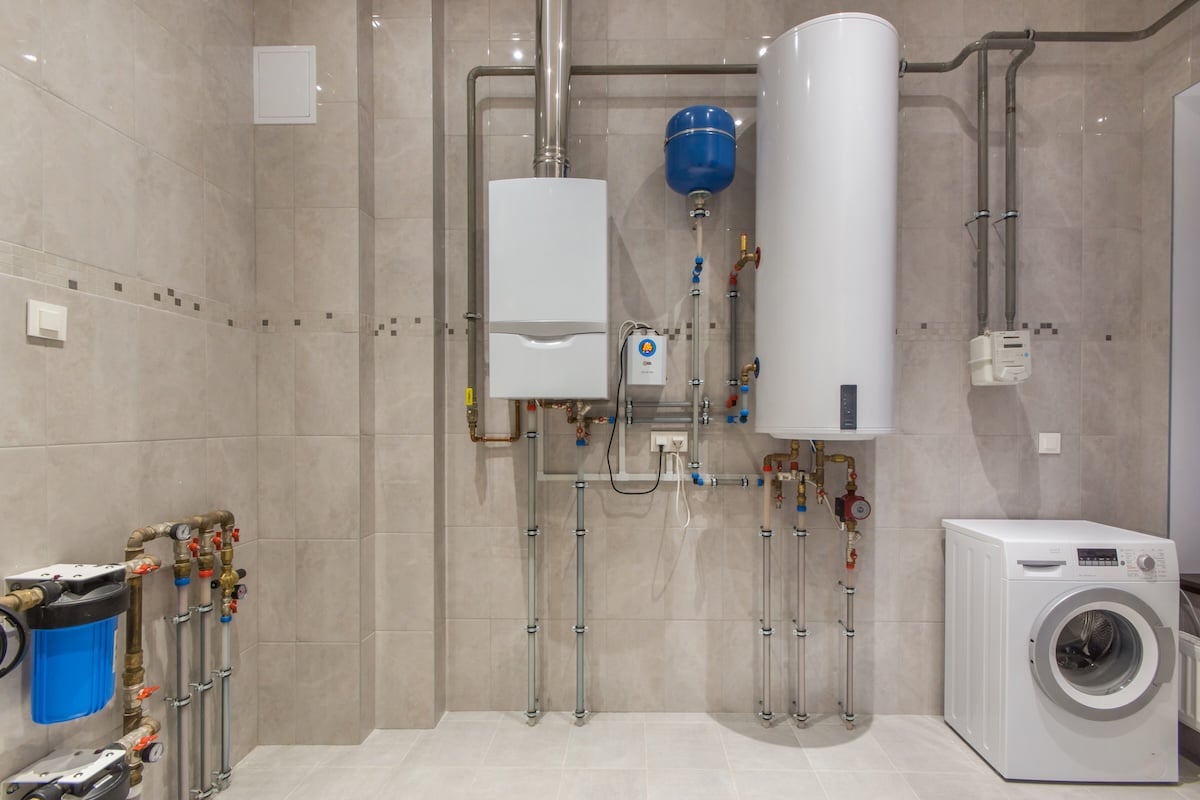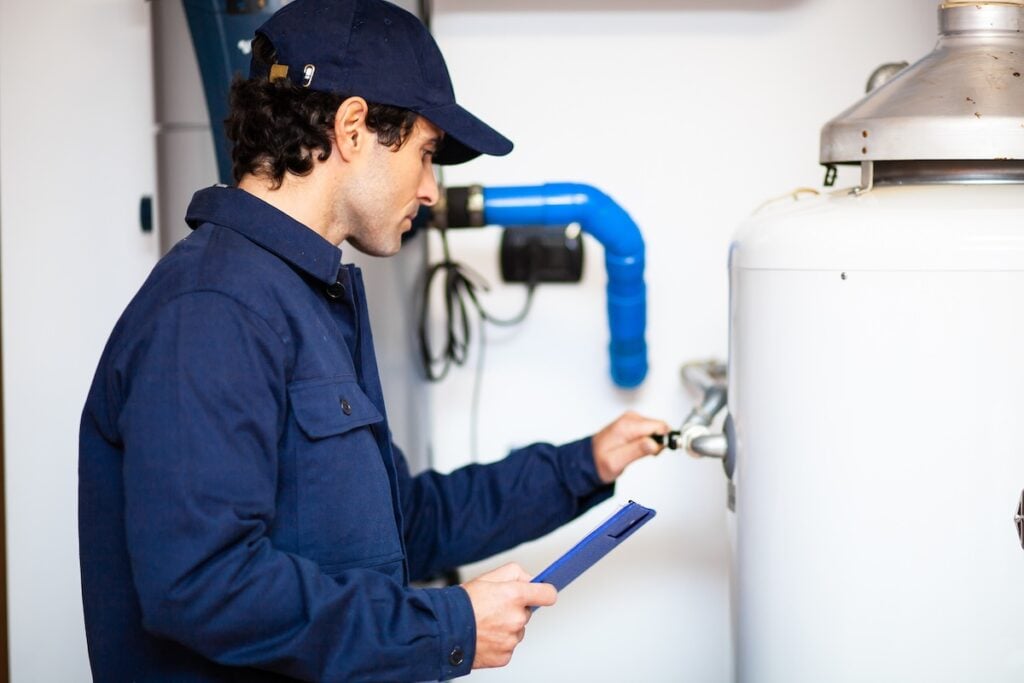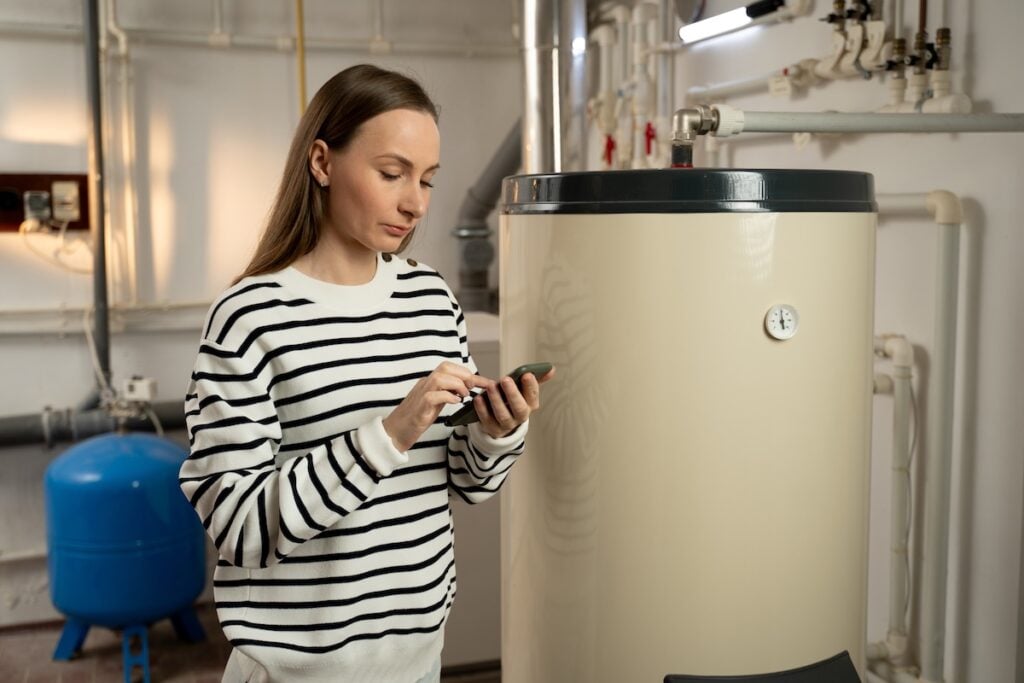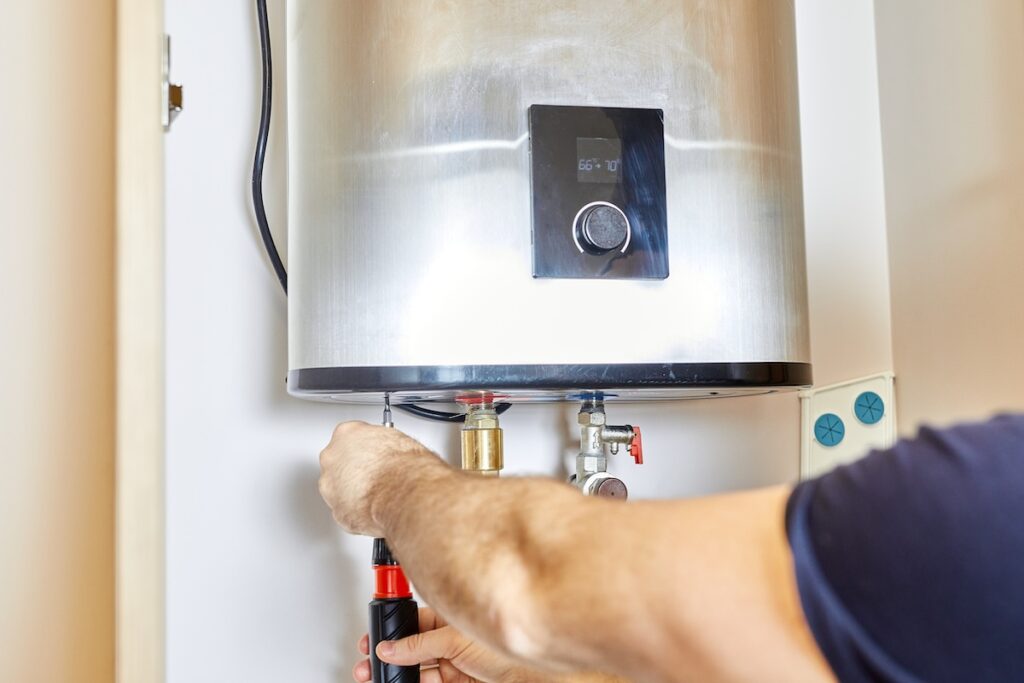


September 12, 2025
What Size Water Heater Do I Need? (Standards, Options & Expert Tips)
Choosing the right water heater size for your home can feel overwhelming, but it doesn’t have to be. Answering the question “what size water heater do I need” is key to ensuring you have enough hot water for your family’s needs without wasting energy or money on an oversized unit.
Whether you’re replacing an old water heater or installing one in a new home, understanding your household’s hot water demands is essential. We’ll walk you through everything you need to know about water heater sizing, from calculating your family’s usage to exploring different types and efficiency options. Here’s what we’ll cover:
- Understanding water heater capacity and recovery rate
- Factors that determine your water heater size needs
- Standard water heater sizes for different household types
- Step-by-step guide to choosing the right size
- Different water heater types and their sizing considerations
🤔 Understanding Water Heater Capacity and Recovery Rate

When determining what size water heater you need, you’ll encounter two important measurements: tank capacity and recovery rate.
- Tank capacity (measured in gallons): Tells you how much hot water the unit can store.
- Recovery rate: Indicates how quickly the unit can reheat water after it’s been used.
Most homeowners focus solely on tank size, but recovery rate matters just as much. A water heater with a higher recovery rate can serve a household’s needs with a smaller tank because it heats water more quickly. Gas water heaters typically have faster recovery rates than electric models, which means you might need a larger tank capacity if you’re choosing an electric unit.
- First Hour Rating (FHR): Combines both tank size and recovery rate. It represents the total amount of hot water your system can deliver in the first hour of peak demand. You can find this number on the yellow EnergyGuide label for an accurate picture of performance.
🔎 Factors That Determine Your Water Heater Size Needs
Several key factors influence what size water heater you need for your home. Understanding these will help you make an informed decision that meets your family’s specific requirements.
Household Size and Usage Patterns
The number of people in your home directly impacts your hot water needs. However, usage patterns matter more than just headcount. A family of four with teenagers who take long showers will need more capacity than a family of four with young children.
Consider your family’s peak usage times. Do multiple family members shower in the morning? Do you run the dishwasher and washing machine simultaneously? These overlapping demands determine your maximum hourly requirements.
Number of Bathrooms and Fixtures
Each bathroom, kitchen, and laundry room adds to your hot water demand. Here’s the typical hot water usage for common fixtures:
- Shower: 10-25 gallons
- Bath: 20-25 gallons
- Dishwasher: 6-16 gallons
- Washing machine: 7-25 gallons
- Kitchen sink: 4-6 gallons
Multiple bathrooms significantly increase your peak demand, especially if they’re used simultaneously during morning routines.
Appliance Efficiency and Age
Newer appliances typically use less hot water than older models. High-efficiency dishwashers and washing machines can reduce your overall hot water needs. However, luxury features like multiple shower heads or jetted tubs increase demand substantially.
🏠 Standard Water Heater Sizes for Different Household Types
Understanding typical sizing recommendations provides a helpful starting point, though your specific needs may vary based on usage patterns and preferences.
| Household Size | Recommended Tank Size | Notes |
| Small (1-2 People) | 30-40 gallons | Ideal for single adults or couples without high-demand appliances. Electric units may need 40 gallons due to slower recovery rates compared to 30-gallon gas units. |
| Medium (3-4 People) | 40-50 gallons | Suitable for families of 3-4. Gas units in the 40-gallon range are often sufficient, while electric units may require 50 gallons for similar performance. |
| Large (5+ People) | 50-80+ gallons | Great for larger families or those with high-demand usage (e.g., multiple bathrooms). Very large households may need commercial-grade units exceeding 80 gallons. |
✅ 5 Step Guide to Choosing the Right Size

Follow these steps to determine exactly what size water heater you need for your specific situation:
1. Calculate Peak Hour Demand
Identify your household’s busiest hot water hour and add up the gallons needed during that time. Include showers, dishwasher cycles, and any other simultaneous hot water uses. This gives you your peak hourly demand.
2. Determine Your First Hour Rating Needs
Your water heater’s FHR should meet or exceed your peak hour demand. Look for this number on the EnergyGuide label when comparing units. This rating accounts for both storage capacity and recovery rate.
3. Consider Your Family’s Growth Plans
If you’re planning to add family members or renovate to include additional bathrooms, factor these changes into your sizing decision. It’s often more cost-effective to install a slightly larger unit now rather than replace it in a few years.
4. Evaluate Your Available Space
Measure the space where your water heater will be installed. Larger tanks require more clearance for maintenance and safety. If space is limited, you might consider a tankless or compact high-efficiency unit.
5. Factor in Energy Source and Efficiency
Gas water heaters heat water faster than electric models, so you might manage with a smaller tank if you choose gas. High-efficiency units, while more expensive upfront, can provide better performance with smaller tank sizes.
⚖️ Different Water Heater Types and Their Sizing Considerations

The type of water heater you choose affects sizing requirements and performance characteristics.
Traditional Storage Tank Water Heaters
Storage tank units are the most common and straightforward to size. Tank capacity directly correlates with available hot water, making sizing calculations relatively simple. Gas models offer faster recovery than electric, allowing for smaller tank sizes in some situations.
Tankless Water Heaters
Tankless units don’t store hot water but heat it on demand. Sizing depends on flow rate (gallons per minute) rather than storage capacity. You’ll need to calculate the maximum simultaneous demand for hot water fixtures. Most residential tankless units handle 2-5 gallons per minute, suitable for most household needs.
Hybrid Heat Pump Water Heaters
These units combine traditional heating elements with heat pump technology for improved efficiency. They typically require the same sizing considerations as traditional electric units but offer better long-term energy savings. The heat pump component requires additional clearance space.
High-Efficiency Condensing Units
Condensing water heaters capture and use heat from exhaust gases, improving efficiency significantly. These units can often meet household needs with smaller tank sizes due to faster recovery rates, though they require proper venting and maintenance.
👨🔧 Trust Our Experts for Your Water Heater Needs
Choosing the right water heater size involves balancing your family’s needs, available space, energy efficiency goals, and budget considerations. While these guidelines provide a solid foundation, every household is unique.
Ready to upgrade your water heater? Contact us today for a free consultation and estimate. Our certified technicians will ensure you get the right size water heater for your home’s needs, installed properly for years of reliable service.


